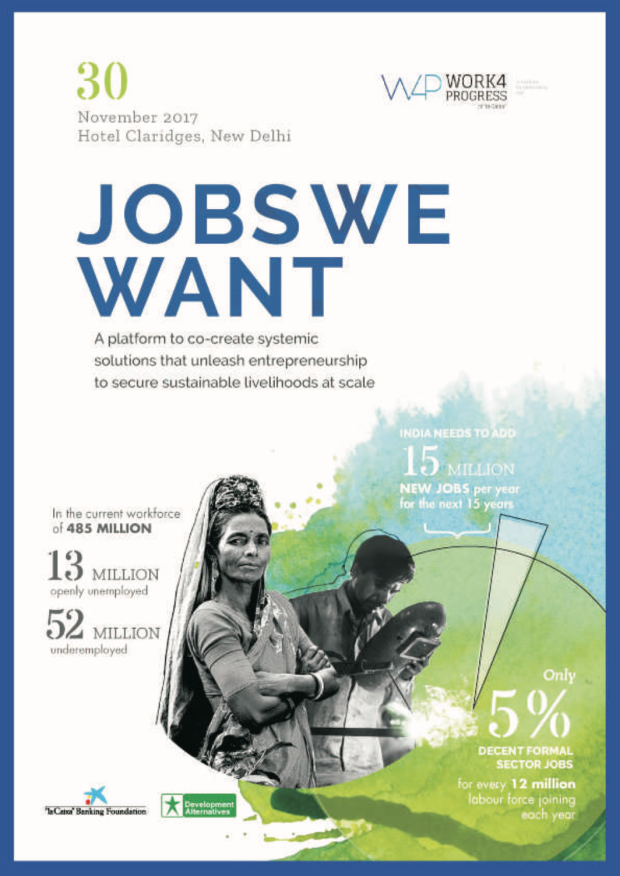In less than ten years from now, by 2027, India will expand to become a $6 trillion economy. This impressive growth trajectory has however, not translated into a corresponding increase in jobs. Our belief is that micro entrepreneurship forms the center-piece for building future of work especially for those being left behind in the race for jobs.
“La Caixa” Banking Foundation and Development Alternatives recognize people’s need to navigate through the complex challenges surrounding entrepreneurship. Work 4 Progress (W4P) was born out of the need by the foundation for a multi-faceted and innovative approach to creating systemic solutions that unleash entrepreneurship – not only creating enterprises by the millions but more importantly enabling them to create ‘decent and ‘attractive’ jobs – jobs ‘we’ want.

In order to do so the program aims to 1. Uncover ‘jobless growth’ through ground up narratives 2. Liberate the entrepreneurial energies communities 3. Empower youth and women to become job creators
Development Alternatives has, through deep listening and interactive processes, built an understanding of the entrepreneurship landscape in hundreds of villages of Uttar Pradesh. Resources have been pooled to introduce innovative, systemic solutions in over40 villages. One such example is the use of community radio to launch a competitive “reality show” for entrepreneurs called Kaun Banega Business Leader in which 800 participants are at different stages of co-creating business models and enterprise solutions to tap into new economy opportunities.



